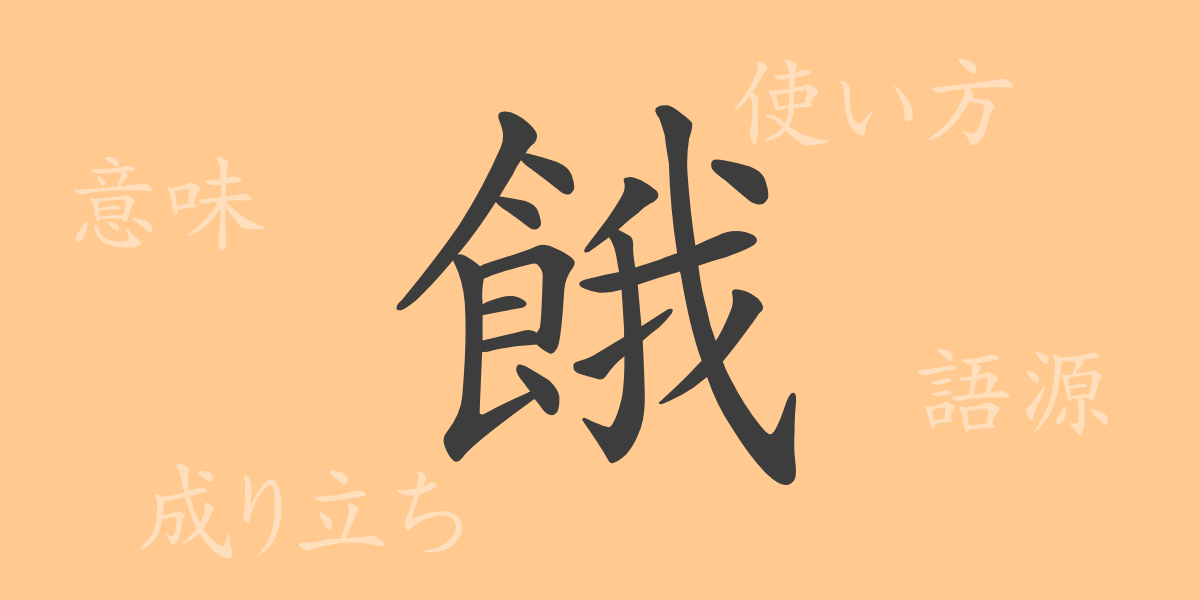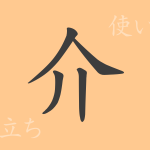The power of a single Kanji character can deeply engrave itself in our minds through its shape and sound. One such character with a strong message in the Japanese Joyo Kanji is “餓” (Ga). This article delves into the origins, meaning, usage, pronunciation, and phrases and idioms that use “餓” (Ga), providing a comprehensive overview of the character.
Origins of 餓 (Ga)
The Kanji “餓” (Ga) represents a state of extreme hunger due to a lack of food. It is composed of the radical “飠” (Shokuhen), which means food, combined with the character “我” (Ga), which refers to oneself. From the idea of “I need food,” the meaning of “餓” (Ga) came to signify a personal need for sustenance. In ancient China, famine was often a social issue, which led to the use of this character.
Meaning and Usage of 餓 (Ga)
“餓” (Ga) is a Kanji character that means to starve or to be extremely hungry. It is primarily used in contexts referring to food shortages or extreme states of hunger. For example, “飢餓” (Kiga) describes a situation where there is no food and many people are suffering from hunger, while “餓死” (Gashi) means to die from a lack of food. Metaphorically, it can also be used to express a mental craving, as in “餓える心” (Ueru -Kokoro), a starving heart.
Pronunciation, Stroke Count, and Radical of 餓 (Ga)
The Kanji “餓” (Ga) has a unique pronunciation and structure.
- Pronunciation: The on’yomi (Chinese reading) is “が” (Ga), and the kun’yomi (Japanese reading) are “う・える” (Ue-ru) and “う・え” (U-e).
- Stroke Count: “餓” (Ga) has a total of 15 strokes.
- Radical: The radical of “餓” (Ga) is the food radical “飠” (Shokuhen).
Phrases, Idioms, and Proverbs Using 餓 (Ga) and Their Meanings
There are various idioms and phrases that include “餓” (Ga), such as:
- 飢餓 (Kiga): A state of extreme food shortage.
- 餓死 (Gashi): To die of hunger.
- 餓狼 (Garou): To have a very strong desire, like a wolf that has become fierce in search of food.
- 餓鬼 (Gaki): In Buddhism, one of the beings suffering from hunger and thirst in hell. Colloquially, it can also refer to a child with a voracious appetite or a greedy person.
Summary of 餓 (Ga)
The Kanji “餓” (Ga), with its form and sound, powerfully impresses upon us the severity of famine. Symbolically representing the situation where essential food is unattainable, this character is used in various contexts through idioms and phrases. Even in today’s society, where food is abundant, the significance of “餓” (Ga) remains an important theme that must not be forgotten.

























